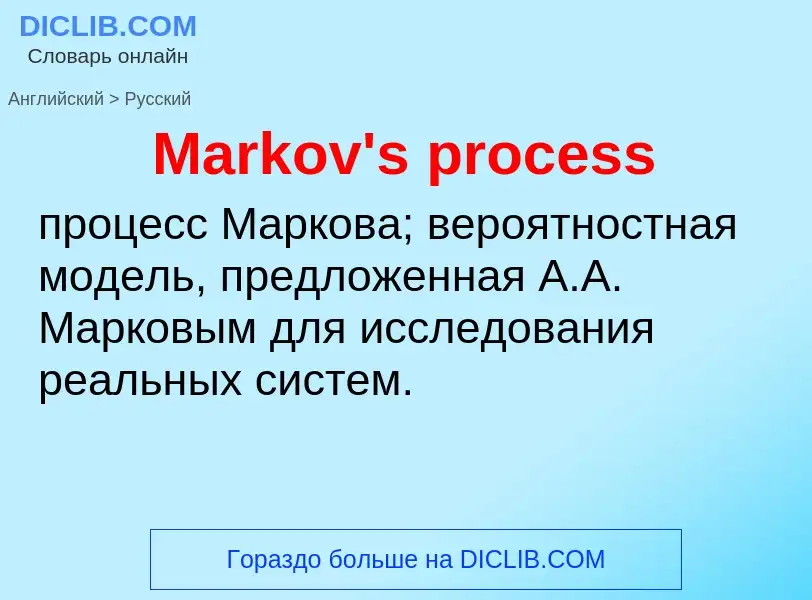Перевод и анализ слов искусственным интеллектом ChatGPT
На этой странице Вы можете получить подробный анализ слова или словосочетания, произведенный с помощью лучшей на сегодняшний день технологии искусственного интеллекта:
- как употребляется слово
- частота употребления
- используется оно чаще в устной или письменной речи
- варианты перевода слова
- примеры употребления (несколько фраз с переводом)
- этимология
Markov's process - перевод на русский
математика
секвенциальная композиция
математика
модель процесса
Википедия
In probability theory, Markov's inequality gives an upper bound for the probability that a non-negative function of a random variable is greater than or equal to some positive constant. It is named after the Russian mathematician Andrey Markov, although it appeared earlier in the work of Pafnuty Chebyshev (Markov's teacher), and many sources, especially in analysis, refer to it as Chebyshev's inequality (sometimes, calling it the first Chebyshev inequality, while referring to Chebyshev's inequality as the second Chebyshev inequality) or Bienaymé's inequality.
Markov's inequality (and other similar inequalities) relate probabilities to expectations, and provide (frequently loose but still useful) bounds for the cumulative distribution function of a random variable.

